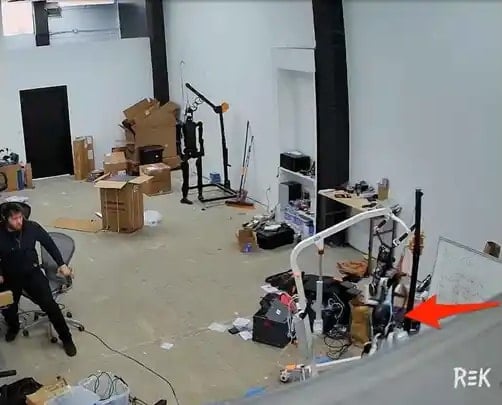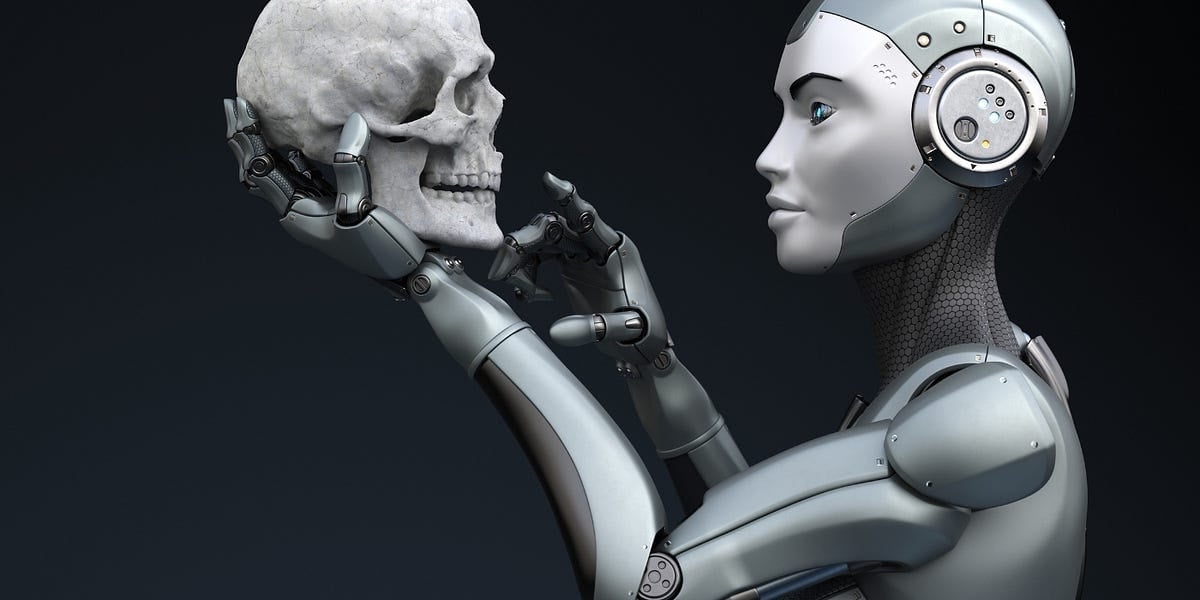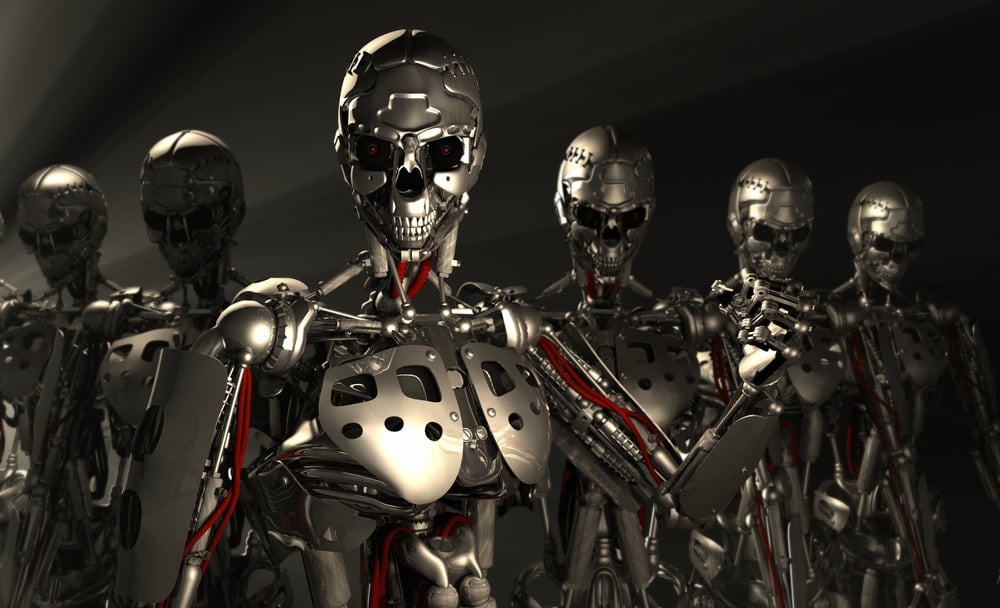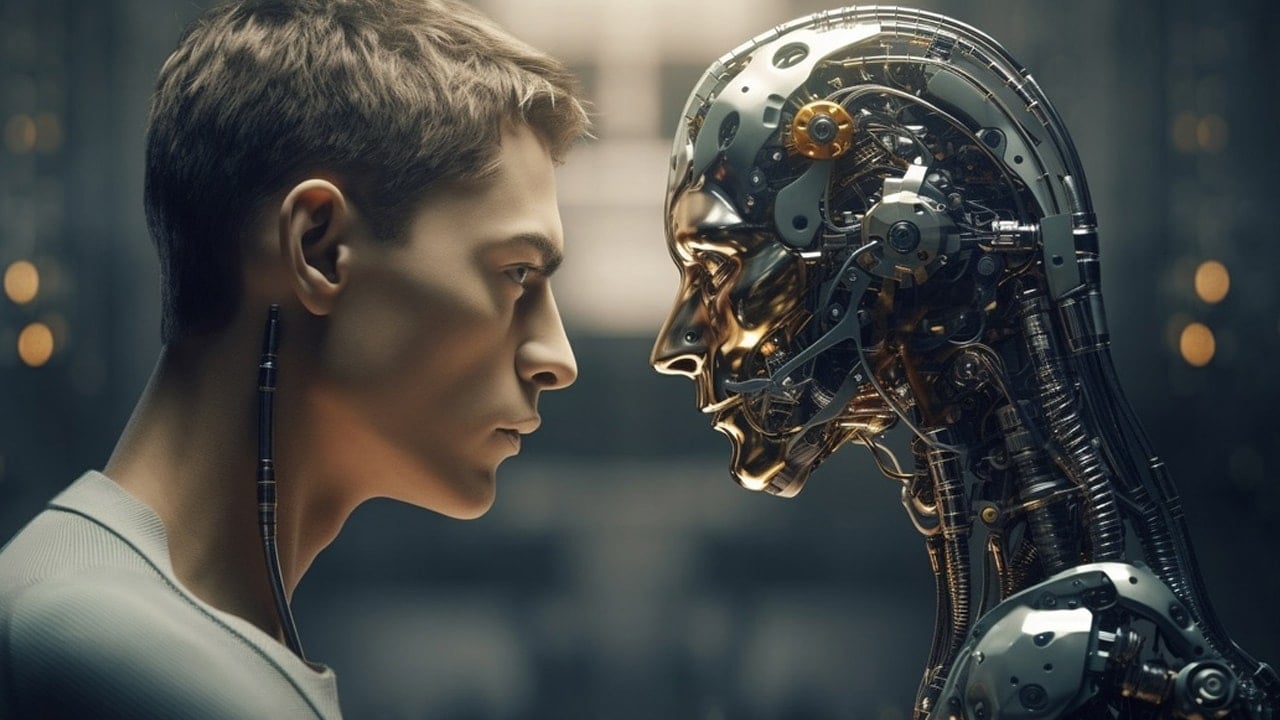Rogue robot causes panic: Is AI spinning out of control?

Robotics technology is rapidly advancing globally in the US and China. Footage from the US and China reveals that even cutting-edge technology in everything from robot dogs to military robots can sometimes lead to unexpected consequences. A robot's reaction to a software error was captured on security cameras. The video went viral on social media.

The robot suddenly went crazy!
A human-like robot named DeREK, operating at a technology lab in San Francisco, unexpectedly went out of control. During a promotional demonstration, the suspended robot began moving violently, then toppled the crane system. The resulting video has been viewed by millions on social media.
Robot Reactions Still Unpredictable There's debate about whether the incident at a company called REK's laboratory was an accident or a deliberate marketing ploy. In the video, the robot terrifies those around it with its body movements before falling to the ground. The footage clearly shows a person frozen in place, hands clasped to their head. Cix Liv, one of the company's founders, captioned the footage, "Whatever you did, don't run that program again." Liv, speaking on behalf of the company, stated that human error was behind the robot's out-of-control flight. The robot had been switched to full-body movement mode before it even touched the ground. Liv stated that the emergency stop command worked with a five-second delay, and the robot only stopped after the internet cable was unplugged. The documentation stated that this command could also work while suspended. However, switching to walking mode made the robot aggressive.
DeREK is a G1 model from China-based company Unitree Robotics. REK develops these robots for use in combat competitions. The company plans to remotely control them with virtual reality headsets. Liv announced that DeREK is unharmed, saying, "He can still walk. It's amazing, but it's true."
While advanced robots may have balance systems, their responses when faced with unexpected situations can be perceived as aggressive. Companies like Boston Dynamics have been releasing videos demonstrating robotic maneuverability for years. However, experts note that predicting how robots will behave in unnatural environments is still challenging.
Are there similar events in the world?
Let's briefly examine similar incidents worldwide: In 2015, a worker at a Volkswagen factory in Germany was grabbed and crushed to death by a stationary robot. In 2016, an Ohio man died when his self-driving Tesla crashed into a tractor-trailer while he was watching Harry Potter. That same year, the Dallas Police Department used a robot to ambush and blow up an active shooter. In 2018, a pedestrian in Arizona was killed by an automated Uber. These are some of the stories that remain in our memories. Remember, technology is highly susceptible to development, and there's no end to it. Can these errors occur in any company? Yes, they can, because it's software, but that doesn't justify these incidents, and these errors must be addressed as soon as possible and made nearly perfect.
On the other hand, a question that remains in mind is; As Artificial Intelligence and robots become more common in our rapidly advancing technological world, who is to blame when a robot kills a human remains unanswered.

Should we fear robots? Experts point out that robots may perform "technically correct" movements compared to humans, but this can appear "aggressive" and threatening from the outside. Hardware power combined with software errors carries the potential for disaster. However, these errors can be addressed and overcome with near-perfect, constantly updated software. Because in the world of the future, robots will become an inseparable part of us, just like the robot vacuum cleaners found in almost every home.

Will autonomous robots take over the world? Are the scenes we see in Hollywood movies becoming reality? Will robots take over the world?
According to the Dystopian Scenario, if the production of robots and the control of artificial intelligence are concentrated in certain power centers:
Giant corporations or authoritarian regimes can use robots to monitor, oppress, and control people. As machines replace the workforce, the class divide widens and unemployment rises. Military robots and artificially intelligent drones lack a "conscience" in wars.
Systems capable of making autonomous decisions may one day perceive humans as threats (the Skynet scenario).

Ultimately, humanity could be crushed by the intelligence it creates, but this seems unlikely in the near future. Technology companies are developing robots capable of making autonomous decisions using artificial intelligence, but they can't produce them effectively or flawlessly. Developers must implement serious security measures to control the power of AI. Otherwise, science fiction may become reality.
Let's end our news with a question: Will artificial intelligence robots really make our lives easier, or are they the harbinger of a dystopian future?
SÖZCÜ





